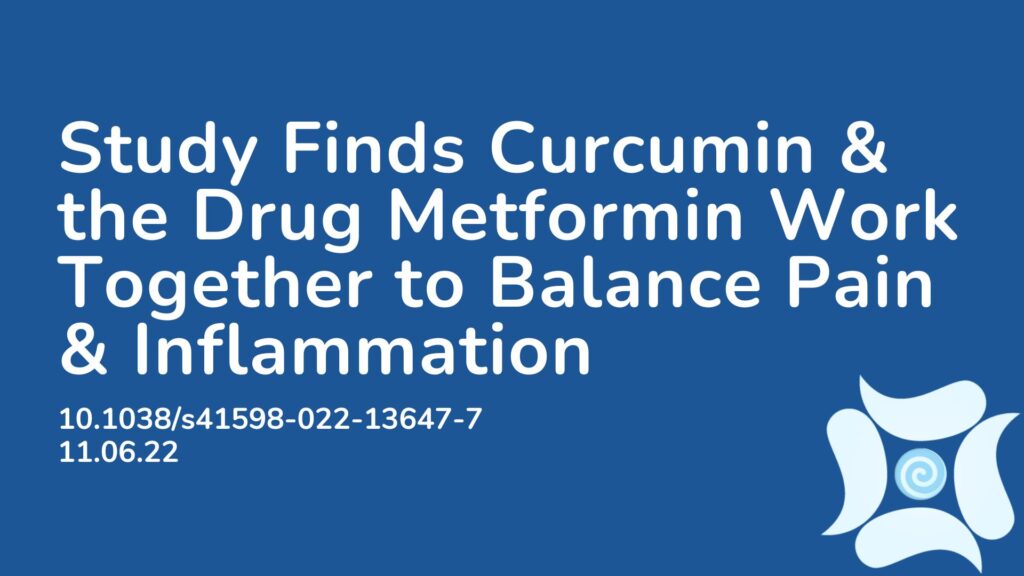Summary: Despite there being several treatment options available for pain, the side effects are wide ranging, from gastrointestinal irritation, cardiovascular toxicity and potential dependence. Seeking alternative treatments for pain management is critically important. Metformin, a drug used to stabilise blood glucose levels, has recently shown potential analgesic effects, however high doses are needed to achieve this result, which increases the risk of side effects. Curcumin is a naturally occurring polyphenolic compound and has been shown to exhibit analgesic effects and reduce neuropathic pain. The objective of this study is to examine whether curcumin can exert synergistic analgesic effects with metformin, as this is still unknown. The results show that curcumin effectively potentiates the anti-inflammatory effects of metformin in both peripheral and central pathways of pain. The findings therefore suggest that curcumin exerts synergistic anti-inflammation and pain reduction effects when used in conjunction with metformin.
Abstract:
Metformin is a well-tolerated antidiabetic drug and has recently been repurposed for numerous diseases, including pain. However, a higher dose of metformin is required for effective analgesia which can potentiate its dose-dependent gastrointestinal side effects. Curcumin is a natural polyphenol and has beneficial therapeutic effects on pain. Curcumin has been used as an analgesic adjuvant with several analgesic drugs, allowing synergistic antinociceptive effects. Nevertheless, whether curcumin can exert synergistic analgesia with metformin is still unknown. In the present study, the nature of curcumin-metformin anti-inflammatory interaction was evaluated in in vitro using lipopolysaccharide-induced RAW 264.7 macrophage and BV-2 microglia cells. In both macrophage and microglia, curcumin effectively potentiates the anti-inflammatory effects of metformin, indicating potential synergistic effects in both peripheral and central pathways of pain. The nature of the interaction between curcumin and metformin was further recapitulated using a mouse model of formalin-induced pain. Coadministration of curcumin and metformin at a 1:1 fixed ratio of their ED50 doses significantly reduced the dose required to produce a 50% effect compared to the theoretically required dose in phase II of the formalin test with a combination index value of 0.24. Besides, the synergistic interaction does not appear to involve severe CNS side effects indicated by no motor alterations, no alterations in short-term and long-term locomotive behaviors, and the general well-being of mice. Our findings suggest that curcumin exerts synergistic anti-inflammation with metformin with no potential CNS adverse effects.
Article Publication Date: 11.06.22
DOI: 10.1038/s41598-022-13647-7



